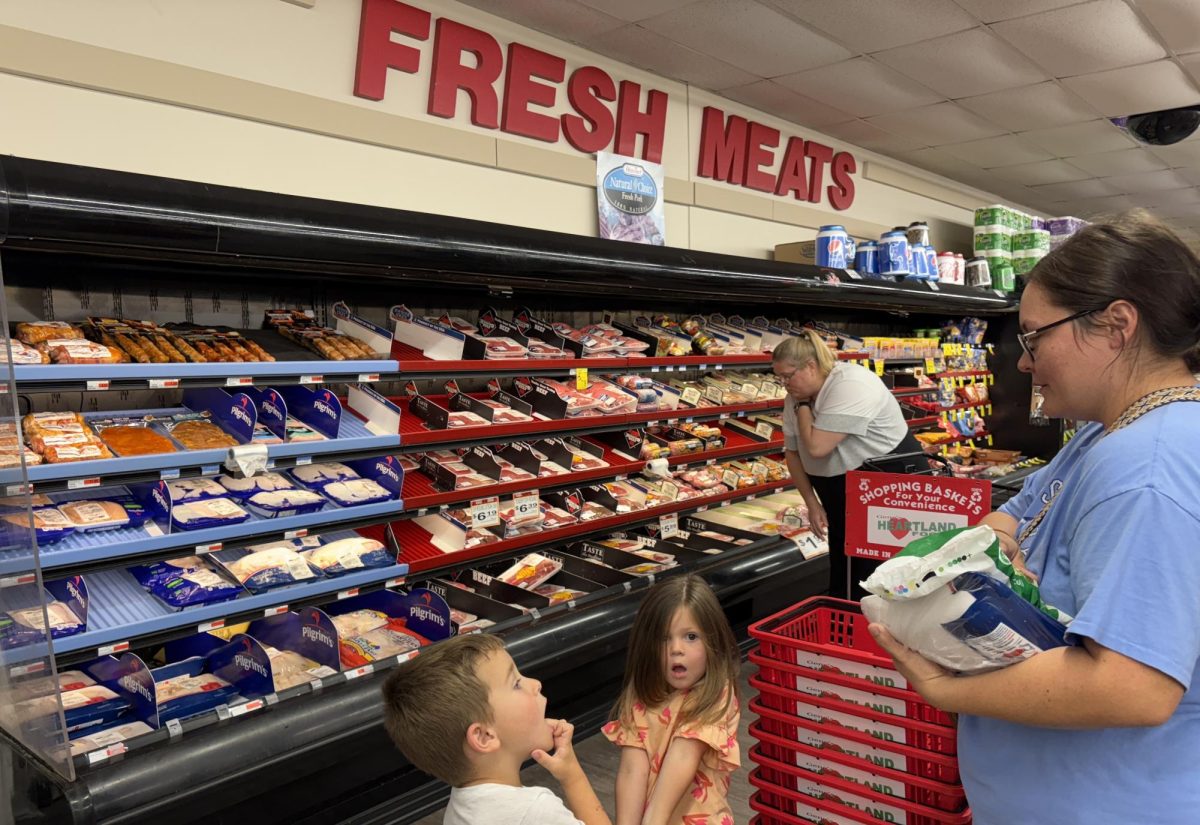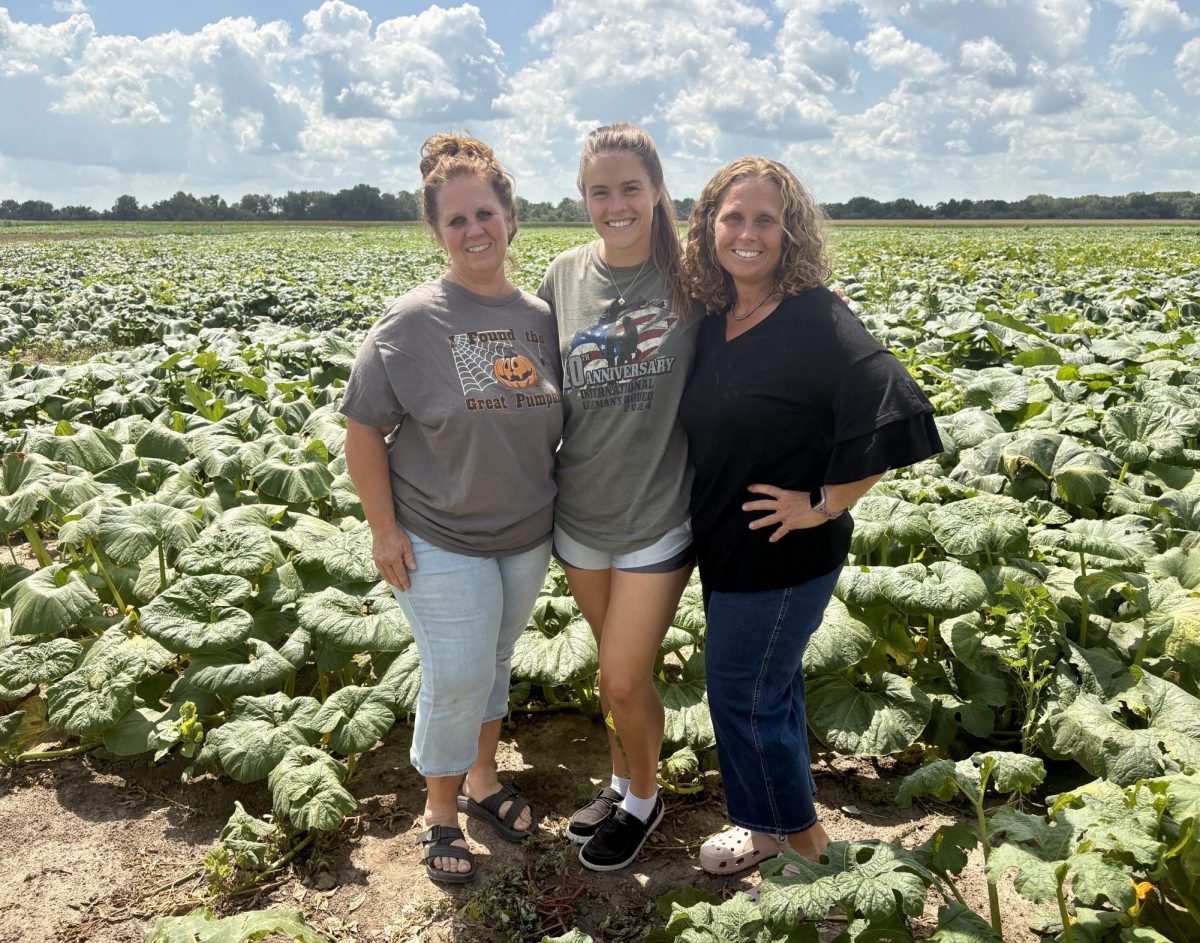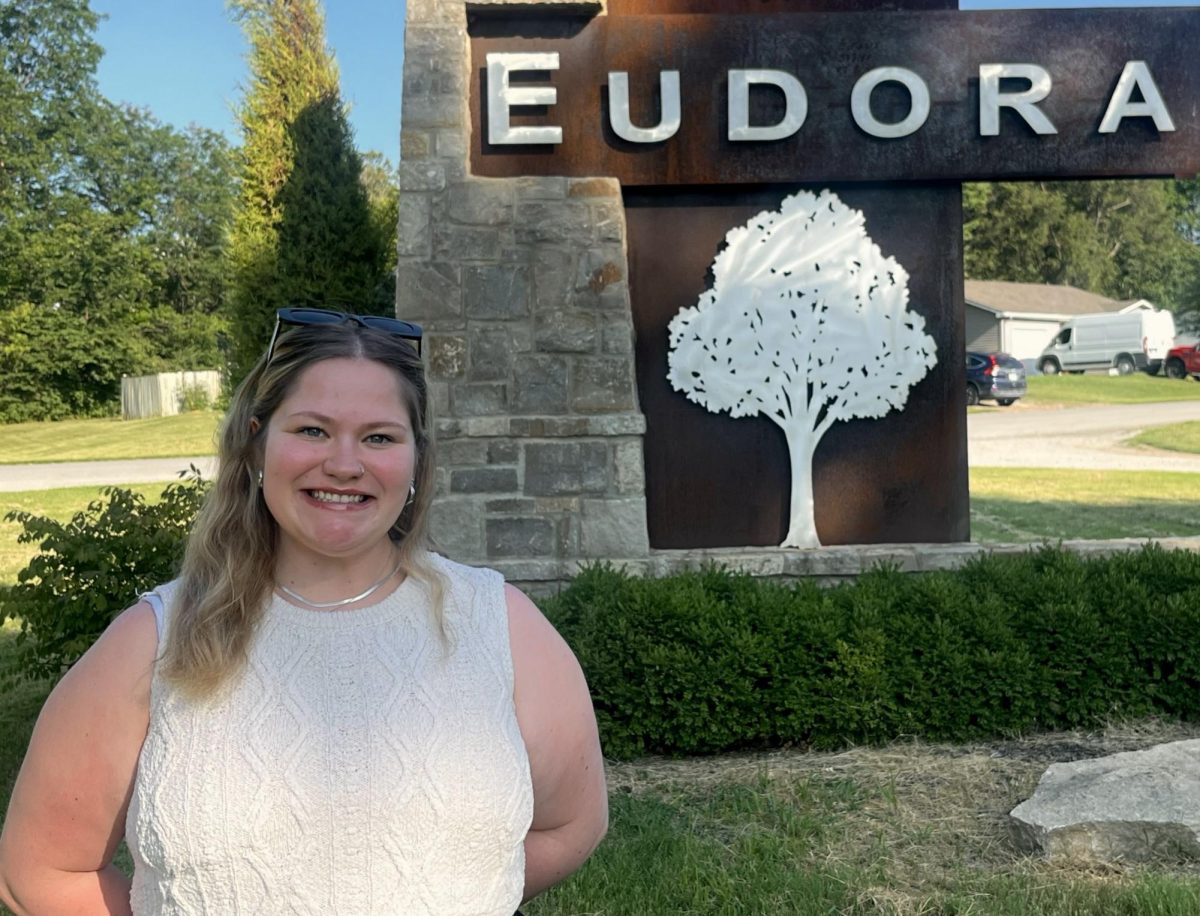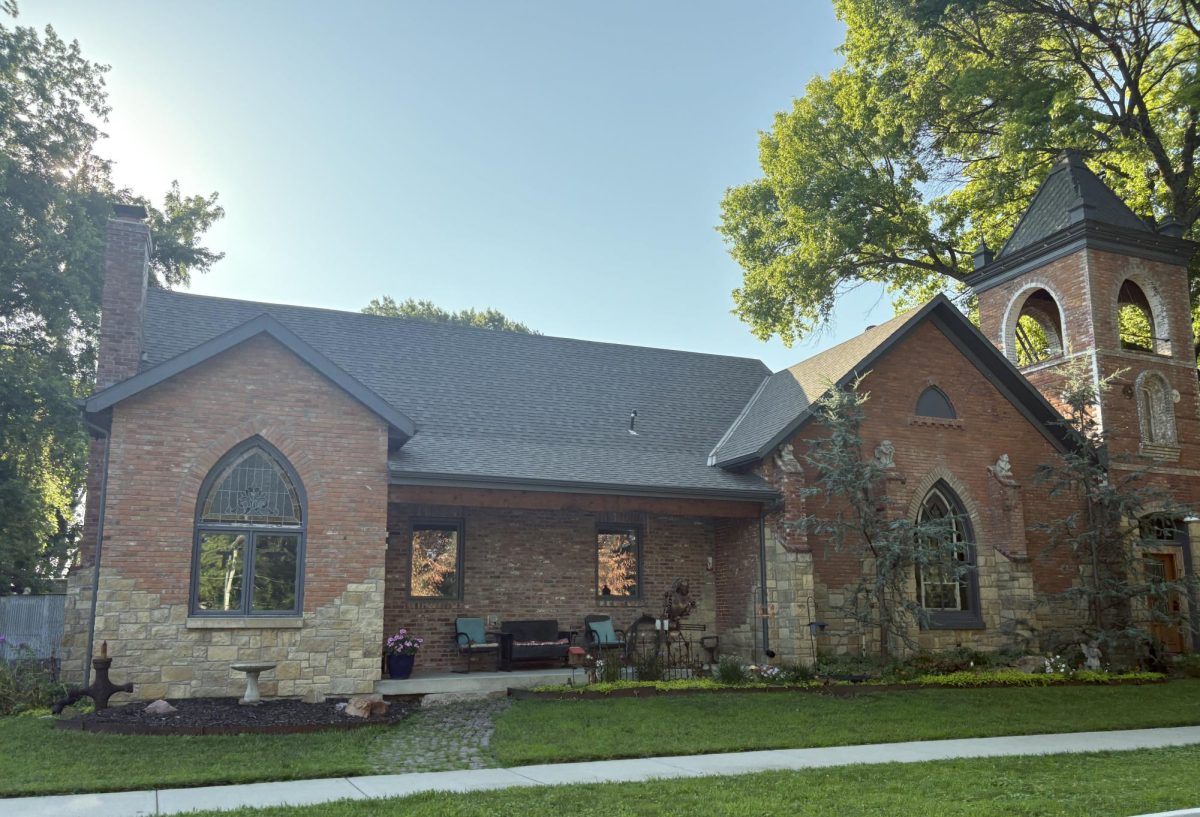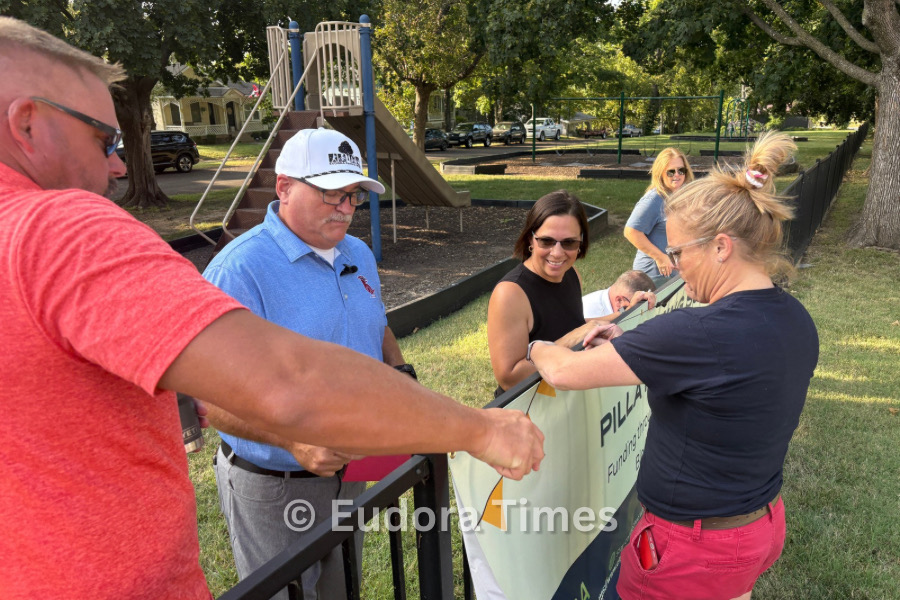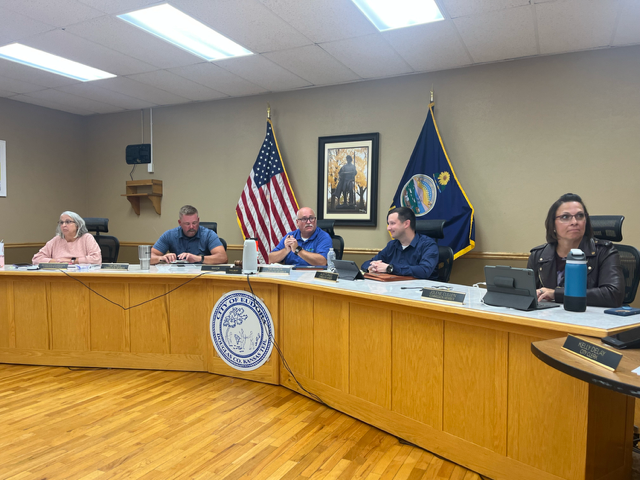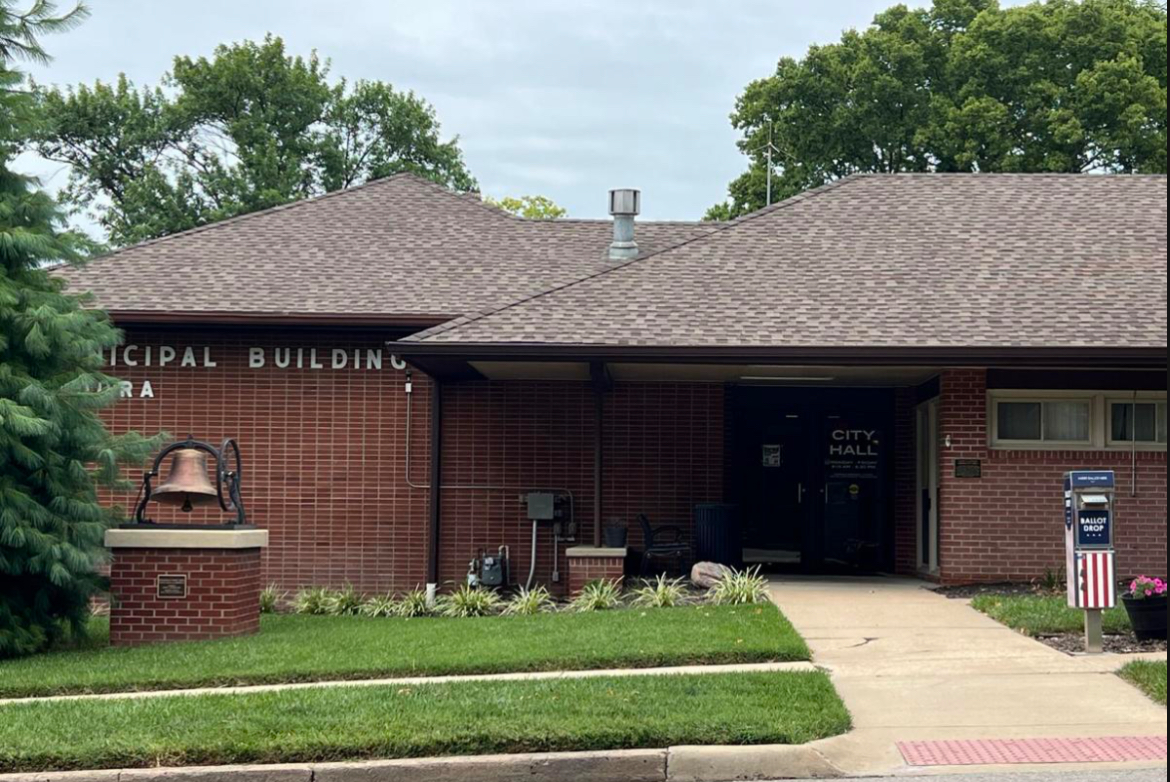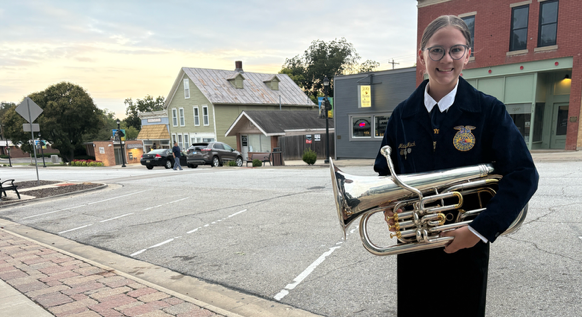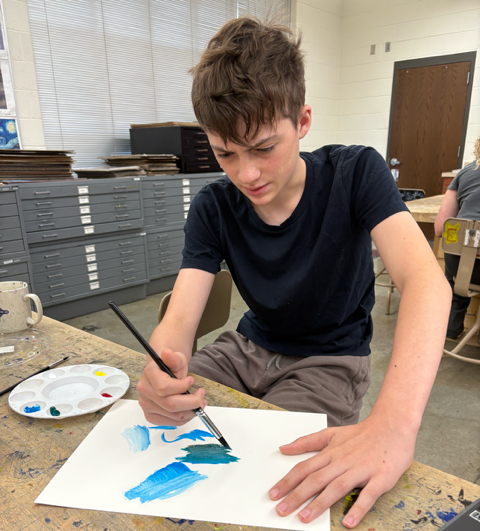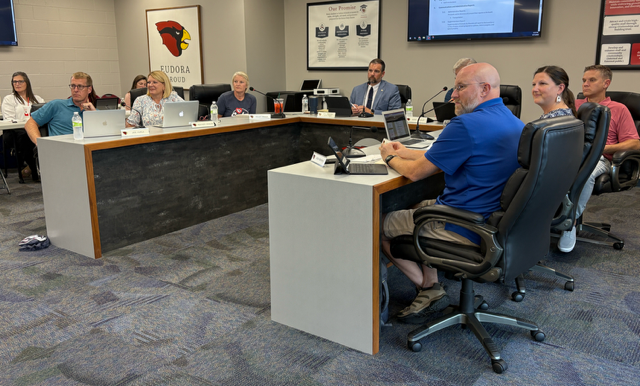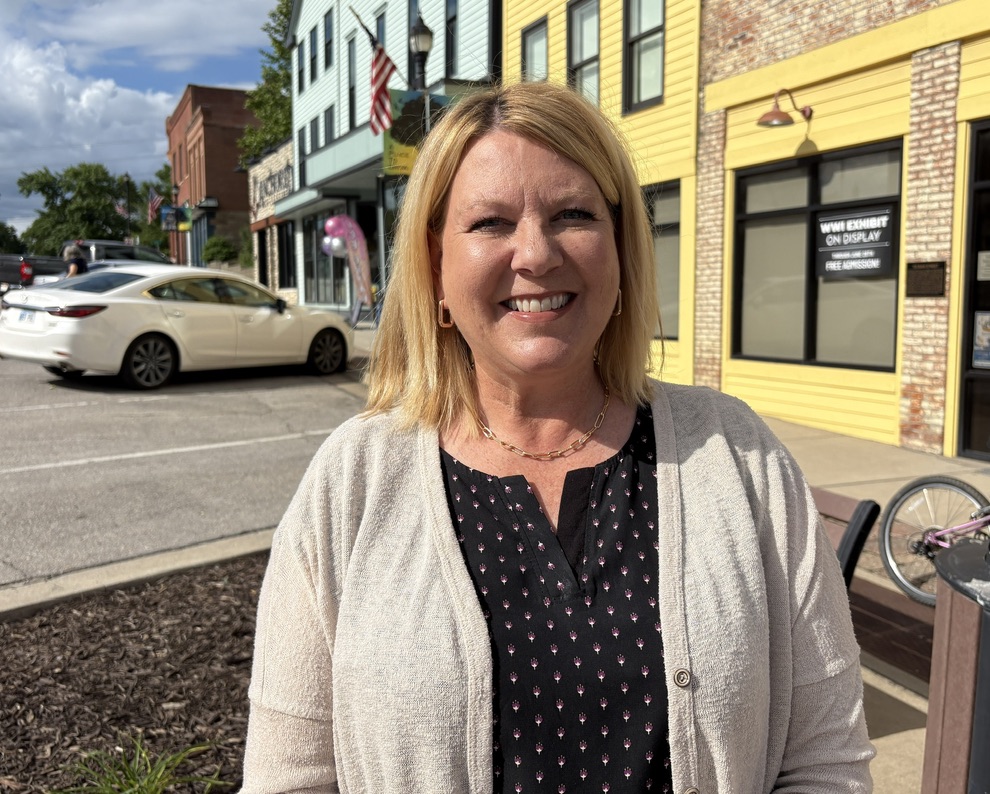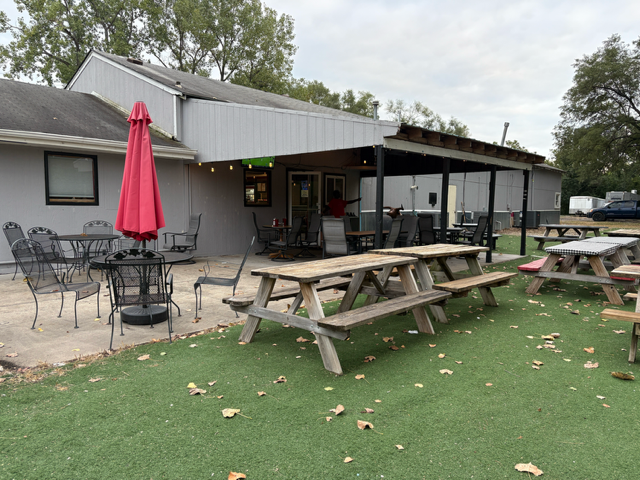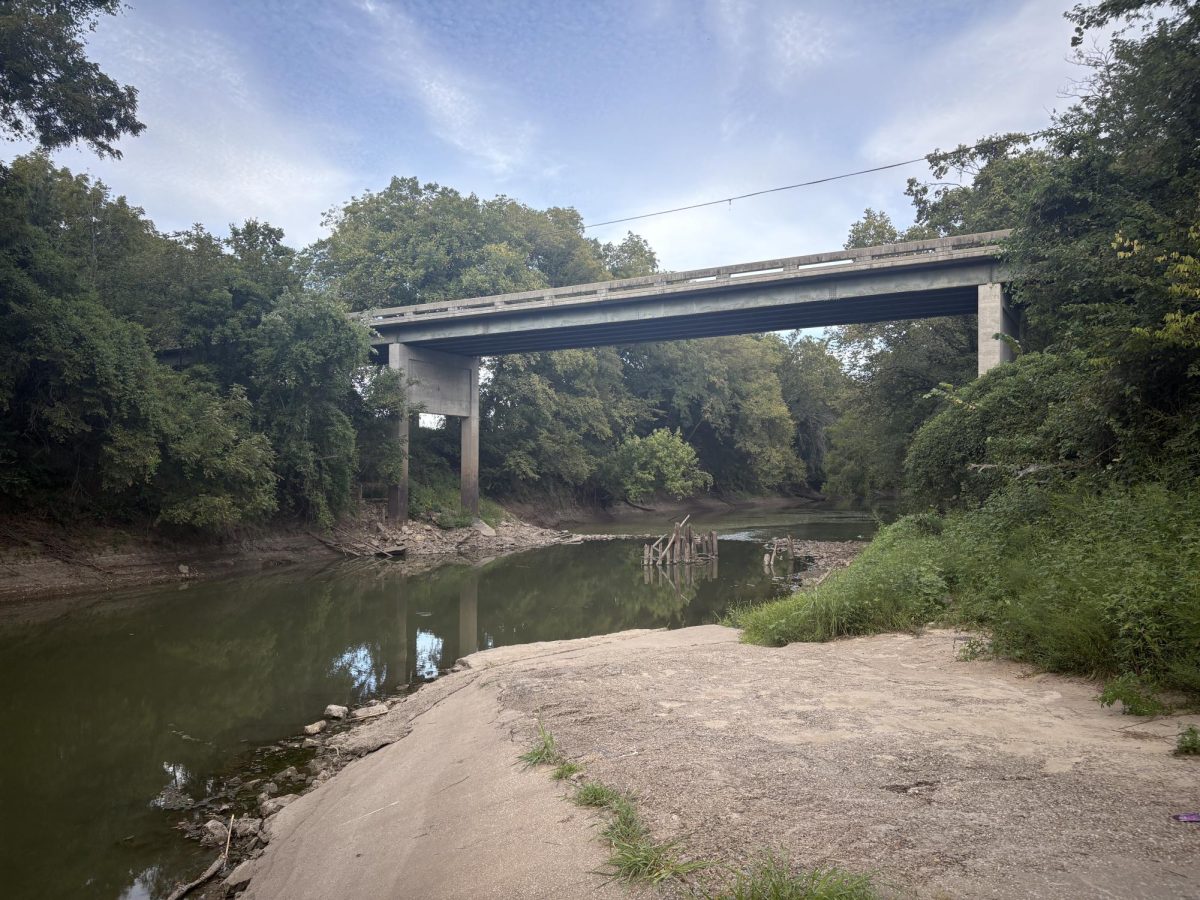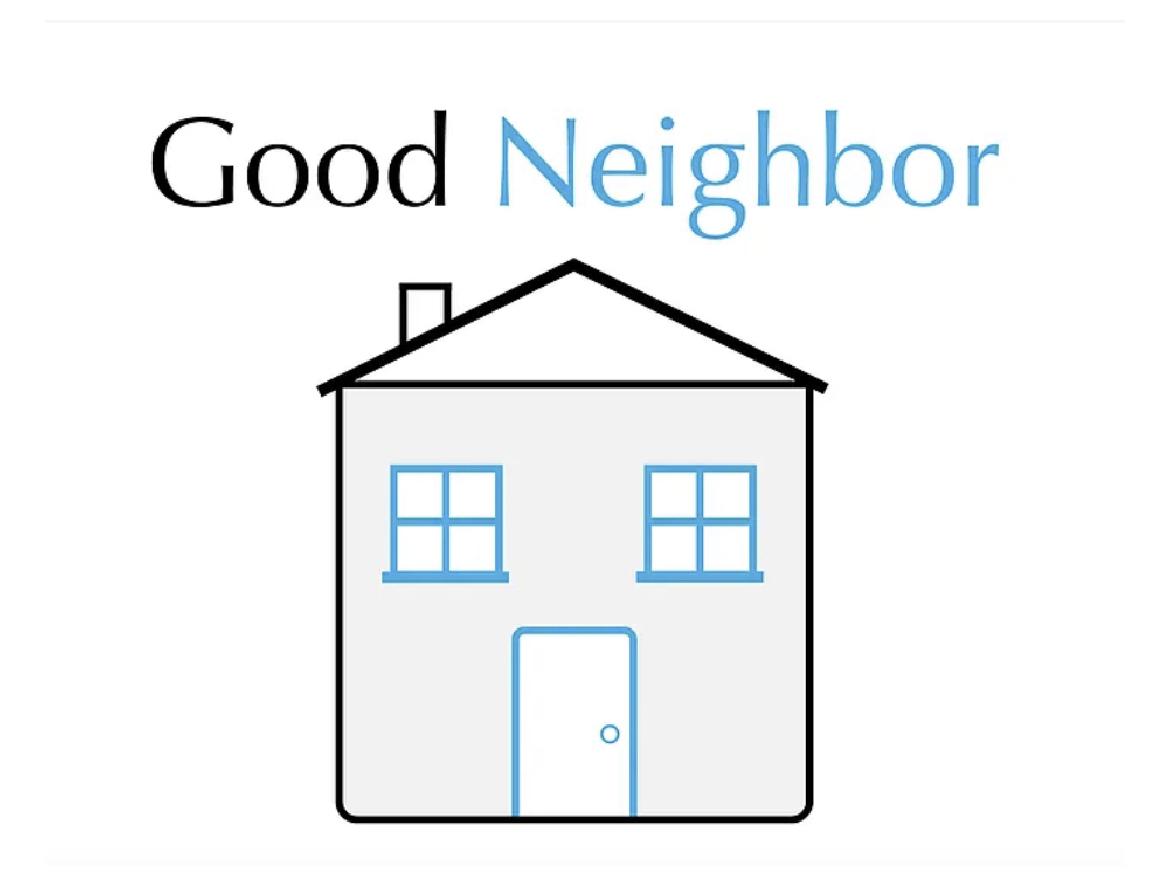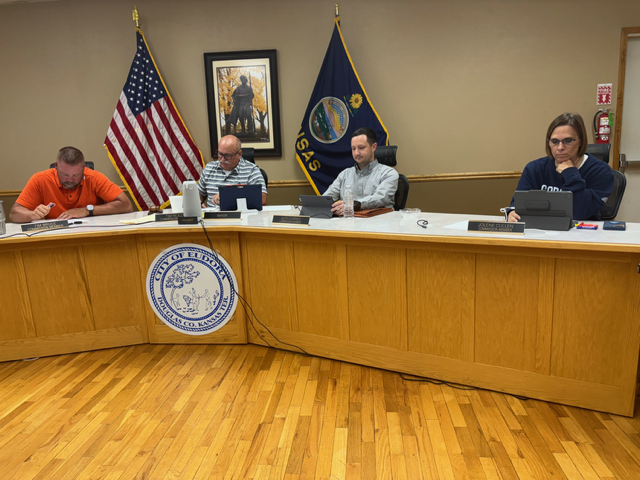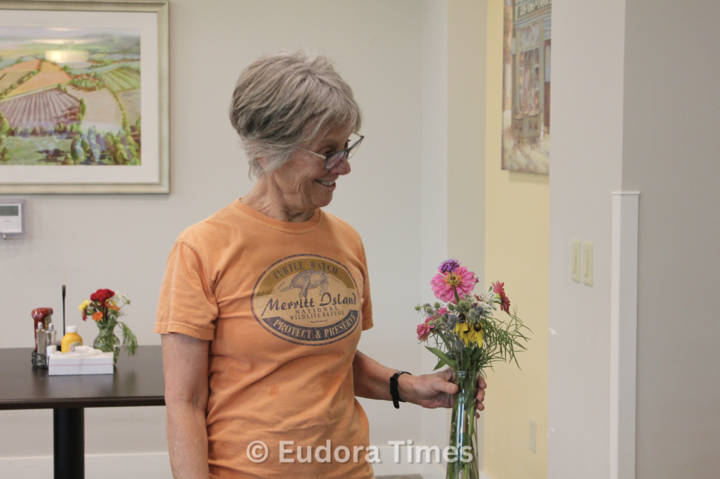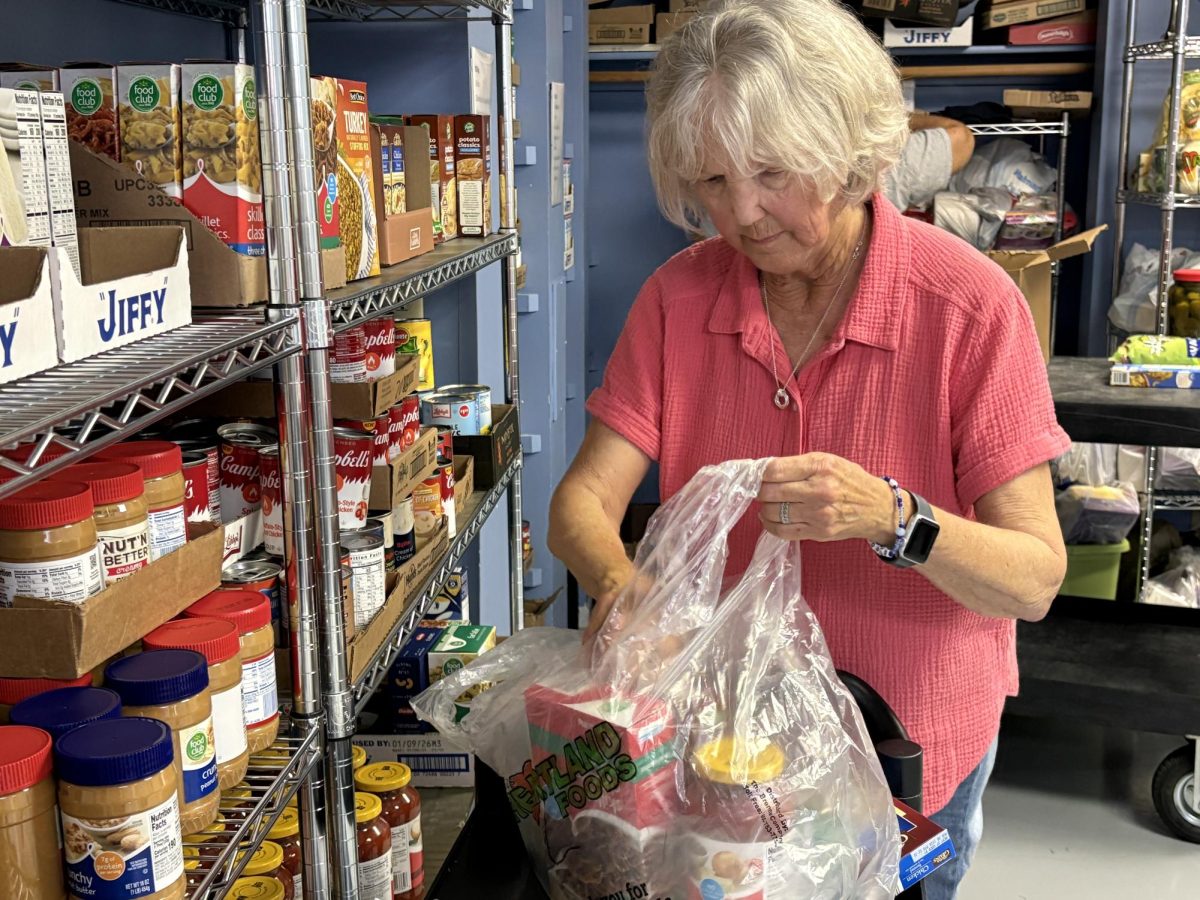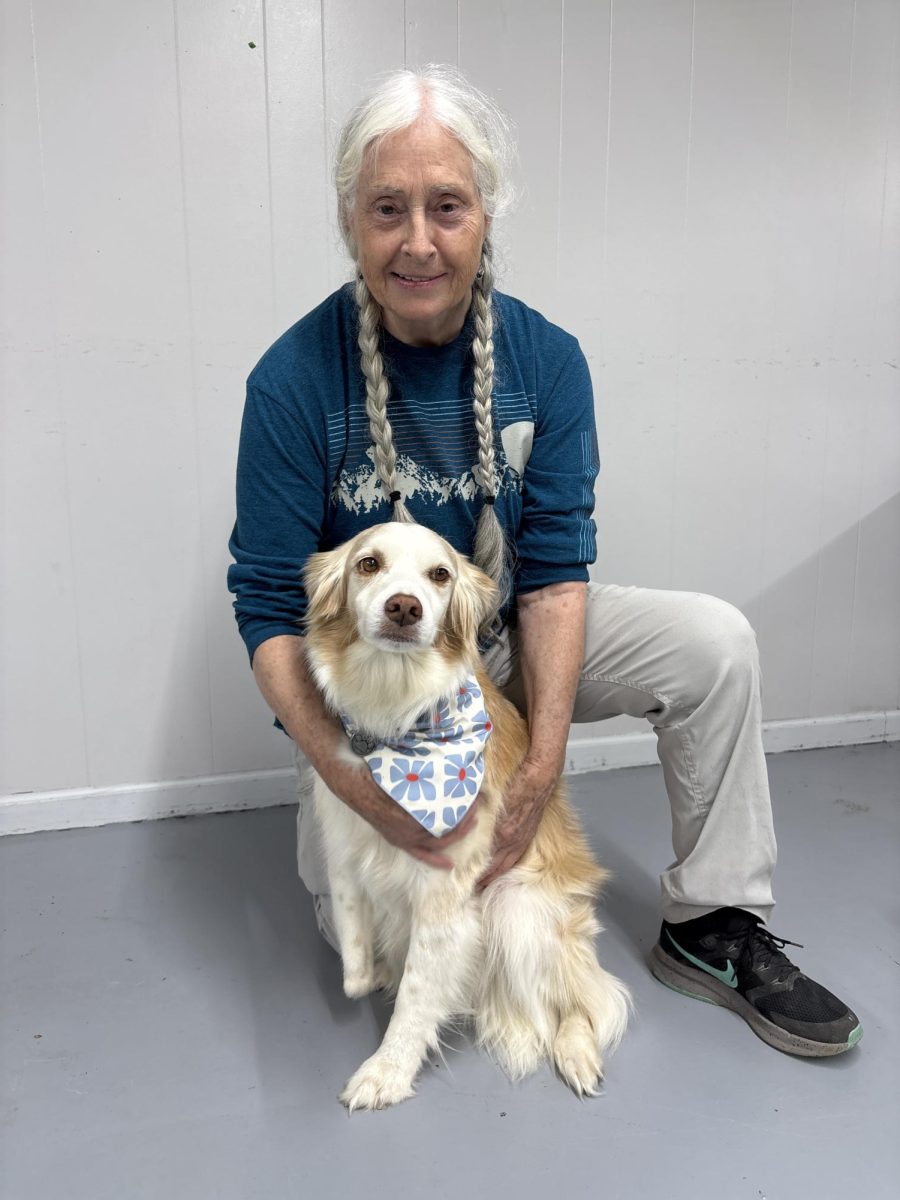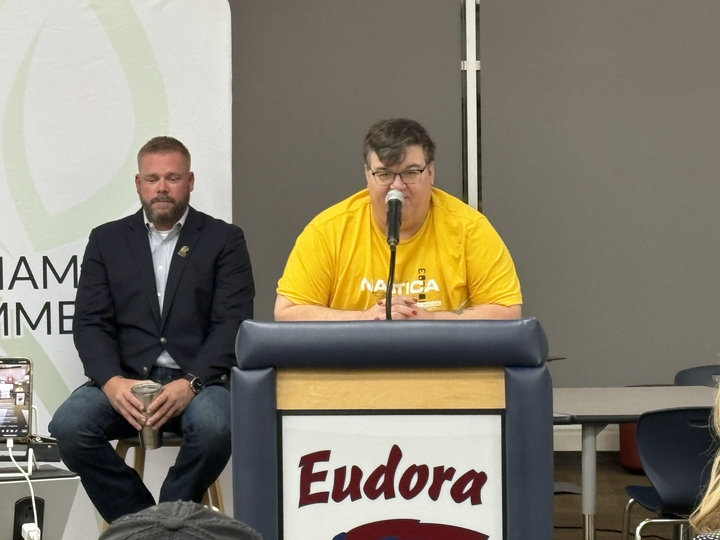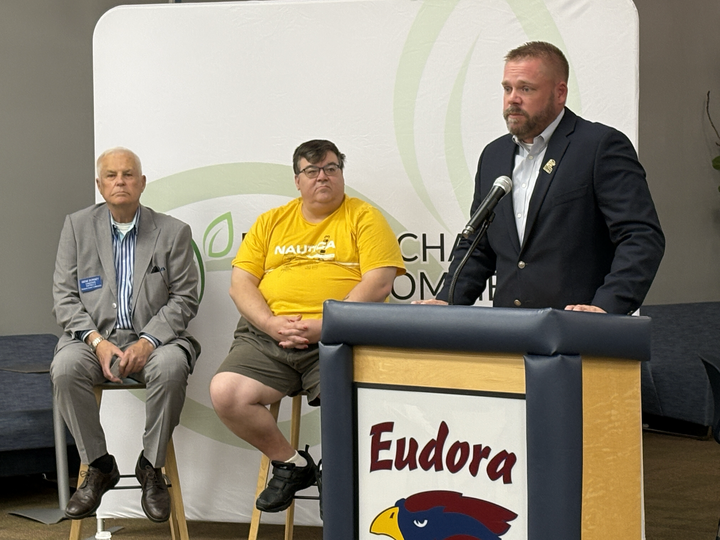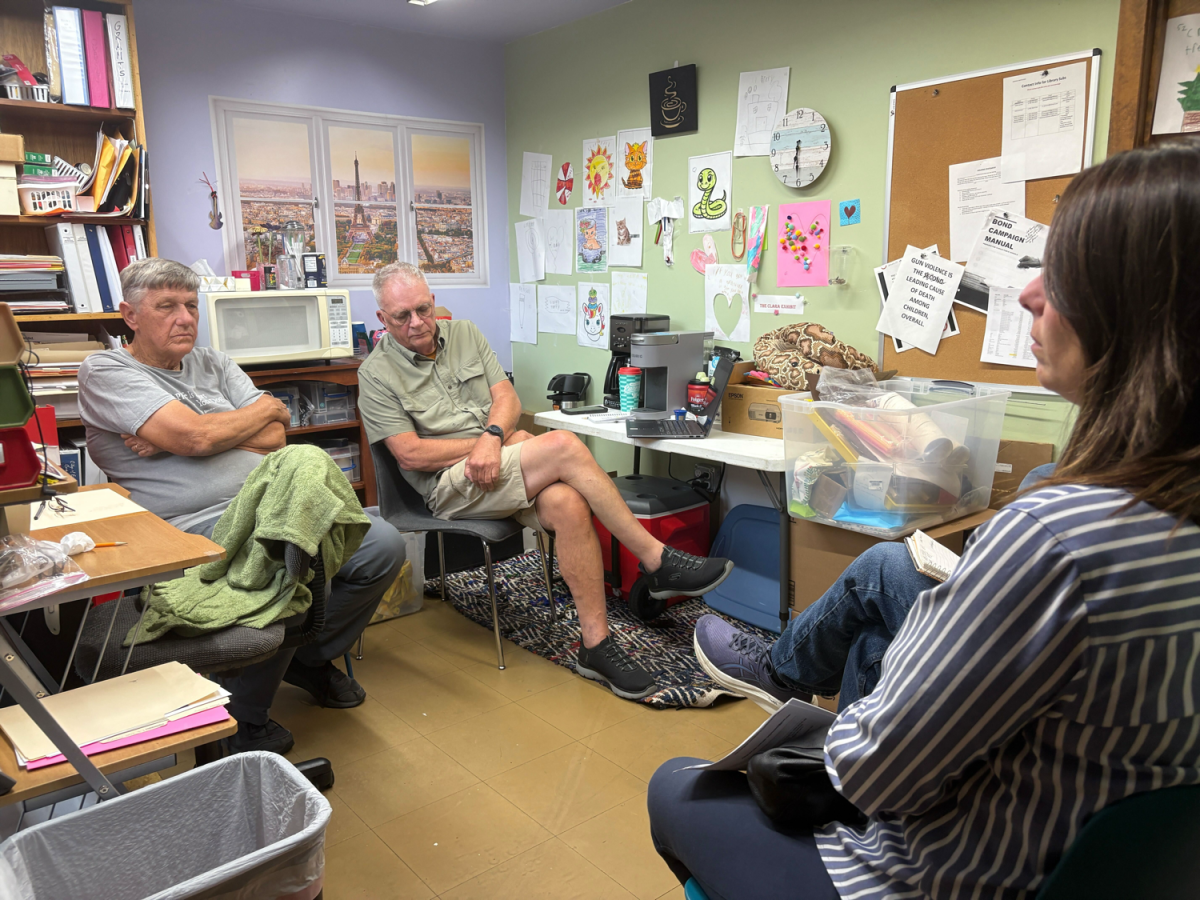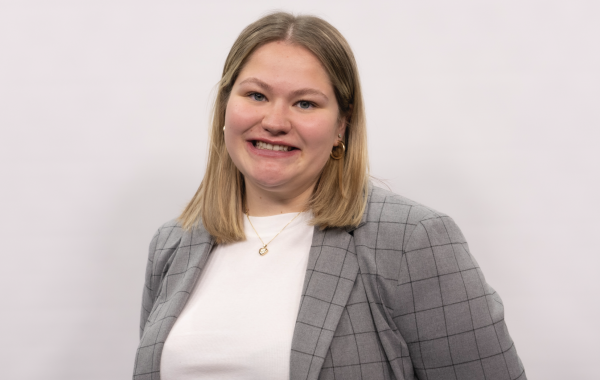Residents had the chance to ask questions Wednesday night to County Commission candidates that ranged from property taxes to ensuring Eudora will have a voice on the commission.
The three candidates for the new District 4 seat participated in the Chamber of Commerce’s first townhall event. Republican Tim Bruce, Libertarian Steve Jacob and Democrat Gene Dorsey answered a set of four pre-determined and provided questions, accompanied by a couple from audience members.
Candidate answers have been edited for conciseness and clarity.
What would be your priorities that you feel need to be addressed or changed within the County Commission?
Dorsey: When I decided to run, I consulted with a few people, and I finally decided to run on values and not on issues, because the issues can change from time to time. So I picked out four values: effective communication, collaboration, compassion and transparency. I think the biggest issue with the county currently is transparency. Their budget process, while more user-friendly than the city process, is still not very open, and I always – on the campaign trail, I always give this example.
Buried in their personnel policies is the fact that county commissioners each year get the average raise of all county employees. So four years ago, county commissioners were making $38,900. This next year, they will be making $49,706. There’s a state law that says commissioners need to vote each year on all elected official salaries. They’re saying they meet that requirement because it’s in the line item budget.
Well, they may meet the letter of the law, but I don’t believe the intent of the law. So transparency is one big thing. Collaboration – I don’t see the county talking to other entities enough about economic development. There’s an organization called the Mid America Regional Council that Miami County is involved in, but Douglas County is not. An example of why that might be important is because the expansion of K-10 to three lanes in each direction ends at the Douglas County line. It doesn’t go beyond that county line.
Well, Johnson County is a big influencer of the Mid America Regional Council and Wyandotte also. So I think we need to be a part of that to make sure we’re getting some of the infrastructure needs that we will need for economic expansion.
Jacob: Gene talks a lot about budget cuts when he’s fully for the new, whatever you call it, safety building, the $70 million that will be $100 million, because you know what’s the way the county spends, and that does not benefit Eudora one bit, let alone the county.
But, you know, what this County Commission needs to do is to take charge. We have a county administrator who is in charge, who tells everyone what to do, and that’s not how it’s supposed to work. I will propose a revenue neutral budget, something that no one else can seem to figure out. The county’s got plenty of money to do it. I want to give as much money as humanly possible back to the taxpayers, before the contractors and whoever take it, because that’s what happens with the government. When the government has a pile of money, someone is going to take it.
Bruce: The reason I’m running for this spot is to help alleviate the tax burden. Our taxes are high. I mean, we worked really hard in the city of Eudora to try to create the neutral budget this year, but couldn’t because the county handed us $150,000 bill for – $125,000. $150,000 – for dispatch services. That’s going to continue to go up. Yet they have many millions in the surplus where they could have – they did make a big impact. We also added some services, but I think it’s important that we try to keep Douglas County an affordable place to live, and affordable is a relative term. Not one of us in this room is going to agree on exactly what affordable means, and that’s always been a question.
Everybody’s like, what are we doing for affordable housing? What is affordable? Because some people feel like $100,000 is affordable. Some people feel like $300,000 is affordable. Tell me what affordable is, and then I can tell you how we can figure out what solution to create that. But trying to separate Lawrence and the county is going to be a challenge, but it’s important to me. It’s always been, you know, Lawrence has its own representation.
With this new seat in the commission, what will you do to ensure that Eudora has a voice?
Jacob: The voters overwhelmingly voted for five districts for a reason: Eudora and Baldwin were not being fairly represented. And then the County Commission decided, okay, we’re going to wait a year and a half to have this election. So we missed out on two budgets. They very well might approve the Safety Center before whoever one of us take office, which is going to eat up about probably half the fund that we already have.
So I think it’s important. This is an important election, and Baldwin, too, they – I think that election is pretty heated, so it’s going to be great having different voices, nonliberal voices, on the commission that reflect Eudora and Baldwin because I joke that people from Eudora don’t live in Lawrence, but they pay Lawrence taxes. That’s probably always the way it’s been, but in general, this is a good thing. I’m excited about this. I’m excited about running for Eudora votes, and this is a good thing, and I hope we all feel more represented after this.
Bruce: This is probably my favorite question. The reason I’m here is to make sure Eudora is represented. This is home. This has been home from the time I started on the Chamber board, back in 2015, 14, something like that, to you know, getting on the City Commission, it’s important to me that Eudora be represented and be a part.
We pay the same county taxes that everybody else in the county pays, and we should have the same voice and the same recognition. And honestly, what can we do to help the county? I mean, we’ve got a pretty amazing asset not very far west of here, and I don’t think that the county is really doing anything to recognize what that opportunity is and how they can help us, help them. I mean, honestly, if we add to the tax base here, that only helps them, too. So I don’t really understand why they haven’t pushed it more, but hopefully we can change that.
Dorsey: As I said earlier, I live in the Schwegler neighborhood, which is south of Allen Fieldhouse a little bit, between 19th and 23rd street. I’ve been coming to Eudora since I announced that I would be running. I’ve attended some of the Senior Resource Center events. I’ve been to Eudora township meetings. Usually there’s four people there, sometimes five. I’ve been going to City Commission meetings to learn what’s going on there.
Taxes are a big issue, but remember, only about a third of your tax bill is from the county. Eudora’s population is 25% under the age of 18. So you’re going to have, that’s about 1,200 people or so. You’re going to have school budgets that continue to expand. And the problem is, if you want to expand housing, you’ve got to put in sewers and infrastructure.
So I don’t see the city taxes going down too much in the near future. I see the county taxes going up if you don’t get some new leadership in there. Currently, the way they budget is they see how much the property valuation for the county went up over the year, and if it was 6.8% for this year, they say, ‘Oh, good, we have 6.8% more money to spend now.’ Other candidates and other districts brag that they reduced the mill levy this year, but if you do the calculation, they didn’t reduce the mill levy 6.8% so the county’s going to end up spending more money this year.
De Soto just recently announced a drop in their property tax. What would be your plan to help lessen those tax burdens on our community?
Bruce: De Soto has got a really unique opportunity that the rest of the state doesn’t, I think. To clearly compare them to us is oil and water, you know, but to lower our taxes, we’ve got to grow the tax base, which means bringing business here, bringing retail here. I think because of that asset over there, there’s plenty of opportunity to do that. Retailers look at rooftops, and honestly, we don’t have some of the rooftops that we’d like to have to recruit the retail that we would love to have. It just doesn’t make sense. They understand their business models.
There’s nothing we can do about that until we grow so, you know, with some strategic planning, I think there’s plenty of opportunity to help grow. To Gene’s point, that all comes at a cost, right? You know, we’re going to have to add more infrastructure. We’re trying to figure out what a, you know, build a new water treatment plant that’s going to cost several millions of dollars. What that looks like yet? We don’t know, but we know it’s a need, and we know that we’ve got to fill it, and we’re going to continue to have needs, that we’re going to continue to have to come up with a solution. But the way I look at it is, it’s our job as government to, you know, it’s, to me, it’s kind of like business, you know, sometimes you’ve got to make investments to grow the business, and we’ve got to have but we’ve got to have the return too, right?
We can’t just give it all away in an investment and not get anything back. So how do we come up with a solution to grow it intelligently? There’s lots of opportunities. It’s things we’re going to work on. I don’t have a magic bullet tonight, but I do feel like there is plenty of opportunity to lessen our tax burden.
Jacob: In Kansas, STAR bonds are pretty hit or miss. If you ever looked at the Prairie Fire development in Overland Park, they can’t even make their interest payments. They have never even paid on principle yet. Growth with tax abatements is corporate welfare. We got to stop giving the rich more money and hope it works out. The county does that a lot, and even Panasonic scares me. We give them over $1 billion. Not one single job is guaranteed on paper. There is one lithium mine in this country, and it takes 10 years to build one, and who wants that in their neighborhood? So that alone is pretty risky.
And as far as De Soto, De Soto is a world away, different county, because I’ve talked about this my last election against Kelly two years ago. We aren’t doing anything. We don’t know how to grow.
Dorsey: The Johnson County mill levy is 25.4 mills. They have a budget of a billion seven and they’ve got 800,000 people. So I don’t think Douglas County can compare itself to Johnson County, except when we come to salaries for county employees. That was one of the markers that they use to determine how much we wanted to pay our county employees, and I’m saying that that doesn’t compute.
I would hope to bring a little business sense to the County Commission and questioning some of these things is the right thing to do. If you’ve ever been to County Commission meetings, not too much is discussed in depth.
How would you promote economic development in Eudora?
Jacob: I mean, it’s a great location, and Kansas City is coming this way. We’re slowly, or maybe not slowly, becoming a subdivision of Kansas City. But as I’ve said before, growth with subsidies and STAR bonds is just corporate welfare. And as a libertarian, we are against giving the rich more money. But we had a great workforce, great people that live here, and I don’t see why a company wouldn’t want to move here. I know that not giving them all the money that they want doesn’t help, but sometimes we have to be principled, and we don’t want to put our children in forever debt, paying off for the sins that we do. We’re already doing that, let’s be honest. But no, I mean, Eudora’s a great town. It gets overshadowed by Lawrence, unfortunately. But if I’m on the County Commission, I’ll definitely hear all your voices.
Dorsey: Because most economic development occurs within the city limits of either Lawrence or Eudora or Baldwin, it’s difficult for a county commissioner to have direct impact. I think one way that a commissioner can promote Eudora is by being a cheerleader. I go to every shovel turning and ribbon cutting, no matter if it’s in my district or not, because I want people to see somebody running for public office cares about what they’re doing.
Saturday, I was out at Peaslee Tech, and the Boys and Girls Club in Lawrence were cutting a ribbon on 15 bus shelters that they had produced, and were sitting around town and in various places. Peaslee Tech is an asset and could be used to promote industry in Eudora. I think Eudora needs to, and Tim may disagree, but maybe annex another few acres to create an industrial park. Why should all the big warehouses be built just over the county line in Johnson County? But again, when you do that, you’re going to need infrastructure. You’re going to need to put in sewer lines, probably some roads. So to get Eudora moving economically, it is going to cost some money, one way or the other. It’s a tough go, and I’ll do my best
Bruce: I don’t know that I disagree on the annexing part. The problem we struggle with as a community is we are by nature a rural community, and when we start annexing farm ground to grow the city, sometimes that’s necessary, but it’s also putting out other parts of our community. So for me, it just has to be the right project. I don’t know that I disagree. I just need more details. but economic development, to my point, sometimes you got to make investments.
I mean, we’ve seen here in Eudora time and time again that unfortunately, we’ve got to incentivize them somehow. We’d like to think that we have crossed all our t’s and dotted all our i’s so that it’s not a matter of, there is no failure on the backside. But I’ve been a part of a lot of projects for my, you know, professional career that didn’t get off the ground because they didn’t get the correct incentives, because they just don’t make sense without them.
So I think it’s more about the right projects and the right process and doing everything we can. I mean, nobody’s got a, you know, a crystal ball to see how markets are going to change or I mean, there’s always things that are going to impact what we do, right, wrong or indifferent. They are going to be different a year from now, but I think we’ve got a lot of good local leaders here in town, and we’ve got, hopefully going to have, some good local leaders at the county level that will help us navigate the next couple of years into the next, you know, 50 years and make Eudora keep its charm and still create the growth.
A lot of us feel we are the generation that may never see all the STAR bond, all the things come to fruition. I mean, face it, we’re maybe running out of time, but what’s killing us is this property tax. A lot of people are moving to Eudora to be closer to their elders and put their kids in our great school system. We get that, but we are also losing people because of the property tax. And I can tell you about once a month, De Soto looks really good to us, too. If there’s anything that could be done for the seniors that we will see in our lifetime, please, whoever you are on the commission, please work on the property tax. It’s killing us. We can’t work more hours to make up for it.
Dorsey: A big part of that is a lack of housing for seniors. In east Lawrence, you have widows living in a three-bedroom, one-bath house that they no longer need. They can barely afford the property tax on the place. If they pay the property tax, they maybe can’t afford to get the outside painted or other necessary repairs. They would be quite happy in a one-bedroom apartment, but because of the lack of housing, they can’t afford to move anywhere. And with interest rates up recently, nobody’s been building anything. Just because property values go up, though, doesn’t mean the county needs to spend the money that they think is available.
I’ll give you two examples of things I would change in the capital budget. They’ve got an extension of Wakarusa Drive going over the Wakarusa River. Well, that has absolutely no benefit to District 4, and actually only benefit to District 5.
The other thing is the empty church at the south end of South Park currently in the capital budget is an amount of $4 million to spend to renovate that and turn it into office space. Well, I tell people, that’s like building a heavy equipment shed on beachfront property. You need to tear that church down, sell the land to a developer and get some property taxes generated out of that.
Jacob: Gene talks a lot about some good ways to cut taxes, and then supports the $70 million courthouse, which benefits Eudora in no way. I’d love to give the taxpayers back that $70 million, go revenue neutral. That will be a significant property tax decrease when that happens, not just for seniors, for everybody. That doesn’t seem that hard to me, but you know, that’s just the Democratic thinking taxes are good. It’s not.
Taxes are somewhat useful, but for the most part, they’re evil. Taxes are being spent unwisely. They can be used for roads, which is great, but most of the time they’re used for pet projects and stuff like that. So like I said, revenue neutral and giving back that $70 million is a great start to the problems that you are talking about.
Bruce: I haven’t looked at the numbers to see exactly how they play out, but I would love to find a way to lock a senior’s property taxes down and this is just kind of a high-level strategy. I don’t know that it’ll work, but what I’m thinking is that, you know, at a certain point, their taxes don’t go up on that residence any further beyond what they are that day.
Now where it gets complicated is when they decide they need to move or relocate, or that property is not, you know, then they would have to kind of start that process over again. Whatever that value of that new property is the day they started, that’s what it is. So you might move out of a property that’s worth half a million dollars into a property that’s worth $200,000 and your taxes may go up because you made that move.
I don’t know of a better way to try to keep it consistent without something to that effect. But again, I think there’s a lot of rocks to kick over there to try to figure that out. But I think there’s an opportunity. I mean, I’ve seen my own house payment almost double in the last 10 years. Like and it’s all part of it is my house got remodeled, and that was a piece of it, but it’s also that the taxes have gone through the roof.
I watched my parents that live in the house I grew up in that is probably a lot more house than they need right now, but it’s paid for, but it’s the taxes that are killing I mean, they’re going but to Gene’s point earlier, they can’t.
So I think there’s, I think there’s opportunity, especially when we’ve got the surplus that the county’s got, you know, they there should be a place that we can help mitigate that even if it’s not 100% locked in, that it only escalates at a, you know, smaller percentage than everyone else’s, or something. Like I said, I’d have to dig into the numbers further, but I think there’s opportunities there.
What responsibility does the county have – we haven’t talked about this at all – to alleviate homelessness in the county, food deserts, mental illness?
Bruce: Going back to the representation in the budget work. Yes, the county has opportunity to help. Okay, is it the county’s responsibility? I don’t think so. I think the city needs to take the lead on how they fix it, and honestly, that’s the first I’ve heard of that being an issue. So I’d like to talk to you about that later. But the city needs to be in the driver’s seat, whether it’s Lawrence, Baldwin, Eudora, whoever it is, and going, Hey, this is our plan. This is our problem. This is our plan, and this is how we need the county’s help. But I don’t think the county should necessarily step in and be responsible for that, whether it’s in Lawrence or Eudora or Baldwin or Lecompton or whatever, because that, to me, is not their job. It’s the city government’s job, because it’s a city government’s problem inside the county.
Jacob: Just in general, the way the world is now we’re all going to face the homeless situation. Counties, even like you go out, things are just going to get worse. We are. So the federal government is in so much debt, that money is going to dry up.Probably whoever wins, whoever’s president, we’re going to start seeing it. So it’s something that we have to face.
But the county was running the homeless shelter in Lawrence so badly that the city had to take over, and they were spending a lot money on it, so at least the county’s not spending any more money than they have been on it. But you know, homelessness is a problem … a lifelong problem for probably the rest of the time that we are a country.
So I don’t have much of an answer on it. But you know, we need to show them love and like just love and compassion and not break the bank.
Dorsey: There is a state statute, and I don’t know the exact words, but it says the county is responsible for taking care of those who can’t care for themselves. It’s a very old law, and I think when it was written it primarily applied to folks with mental health issues and intellectual development problems, thinking Cottonwood or thinking Bert Nash, and the county helps fund both of those things.
They have contributed to some supportive housing that will be coming up for Bert Nash for folks in a year or so. They have a master plan called a place for everyone, and I forget the exact price tag on that, but what I’ve found in talking to developers, the county is only – they’ve said, ‘We need this many units of housing for the elderly, this many subsidized units, and so forth.’
I found the county isn’t counting what private enterprise is doing. GW Weld is building some subsidized apartments on 10th Street, and I asked him if he had told the county about how many units that he’s putting in there so they could put it in their statistics. And he checked into it, he told me that they don’t have a system to account for that kind of stuff. So that’s where collaboration comes in. We need to be counting what private industry is doing to resolve some of the housing problems and go from there.
What do you feel that we as a county do well at?
Jacob: The county is a place where my trans child can be free to do what they want. We live in a bubble of diversity that’s not really seen anywhere else in the state of Kansas, and it’s wonderful. I Uber college kids, and they are such upbeat and positive, and we have some good hope for the future. And you know, it’s up to us to not ruin their future, but we don’t want to saddle them with debt or a dying planet. The goal of each generation is to make the next generation better, and at least in Douglas County, I think there’s hope for that, because it’s a great place to live. And my father is buried in this district, and I will probably be buried in it as well. It’s a great place to live.
Dorsey: Well, I said jokingly, spend money, but all government organizations do that pretty well. I think the county has done a really great job in developing a system for urgent care for the mentally ill and those people suffering from substance abuse. I think we have a quarter-cent sales tax that’s helping pay for the crisis and recovery center, and I complained for years and years that the fund balance was growing – I think it was up to $16 million at the beginning of this year – and they weren’t spending it on anything. Well, to reduce the mill levy this year, they threw everything against that wall that would stick.
Bruce: This is the hardest question all night. I don’t know, honestly, you know, I sat here listening to these guys, and I think everything they said is on par, but I don’t know that there’s a lot of things they’ve done well, I think they trip over themselves. You know, they do great things, and then they undo it by doing something else a year later I don’t understand, but this is home, and this is what I’ve always known as home, and I hope that my grandkids know as home. So I want to try to keep it what it was with the growth that it needs to sustain itself. So, you know, making it a safer place to live.

